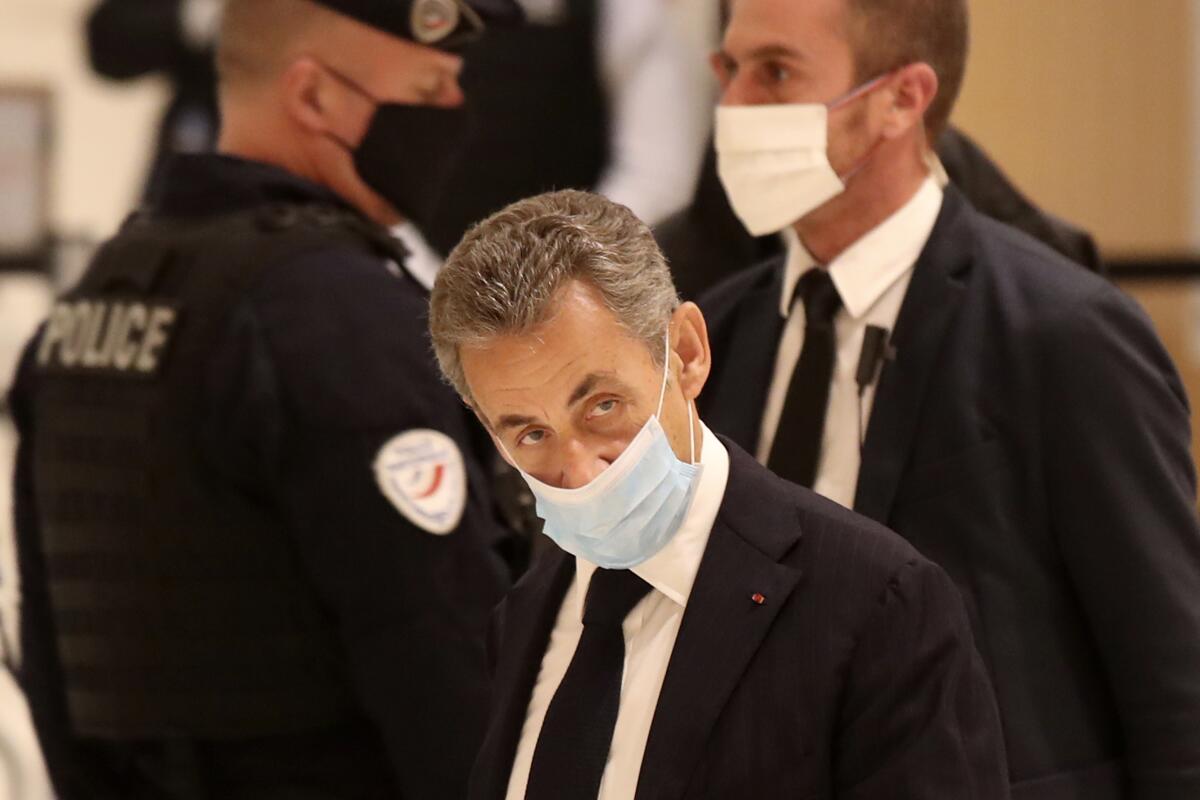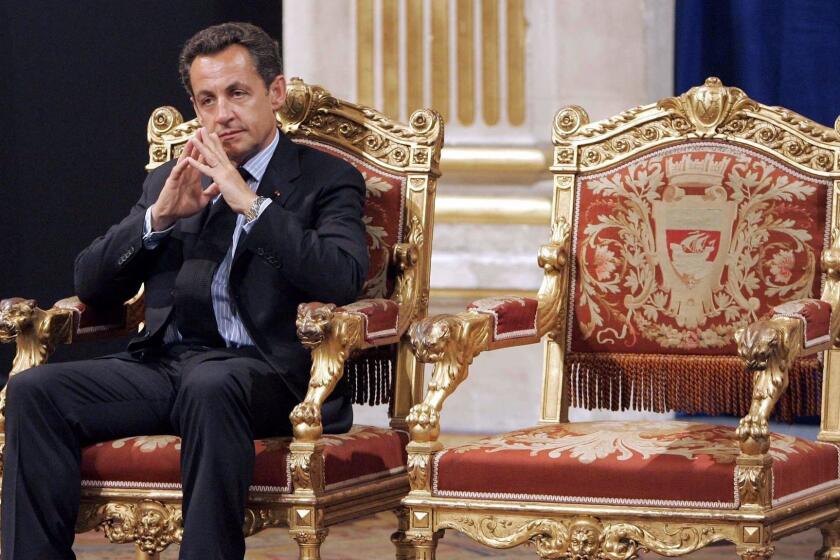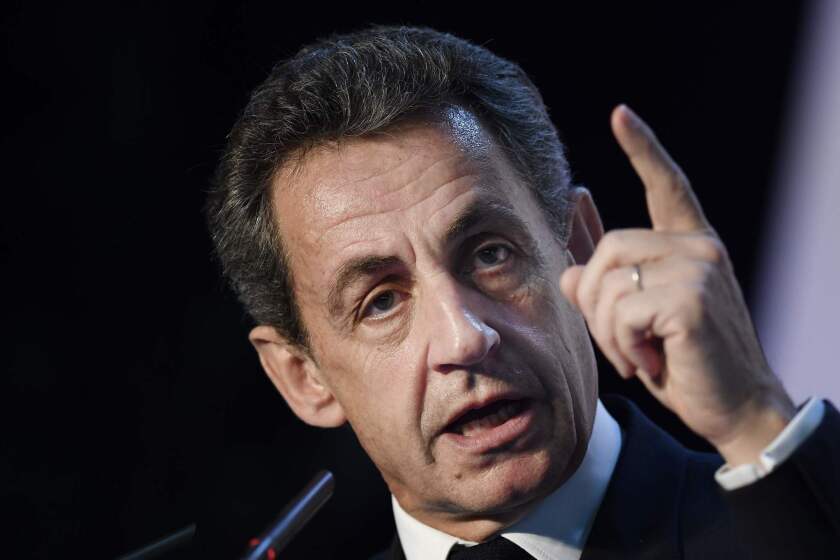Ex-French President Nicolas Sarkozy goes on trial in corruption case

- Share via
PARIS — The trial of former French President Nicolas Sarkozy on corruption and influence-peddling charges was suspended Monday less than two hours after it started in order to allow a medical report on one of the defendants.
Sarkozy is accused of having tried to obtain information illegally from a magistrate about an investigation involving him in 2014.
He is standing trial in a Paris court along with his lawyer Thierry Herzog, 65, and the magistrate, Gilbert Azibert, 73. They face prison sentences of up to 10 years and a maximum fine of $1.2 million. All three men deny any wrongdoing.
Sarkozy and Herzog are alleged to have promised Azibert a job in Monaco in exchange for leaking information about an investigation into suspected illegal financing of Sarkozy’s 2007 presidential campaign by France’s richest woman, L’Oreal heiress Liliane Bettencourt.
Sarkozy arrived Monday at the Paris court surrounded by his lawyers and bodyguards. The court itself has been placed under high security because hearings in Sarkozy’s case, scheduled until Dec. 10, are taking place at the same time as another key trial — that of alleged perpetrators of the 2015 terrorist attacks on the offices of satirical magazine Charlie Hebdo and on a kosher supermarket.
Sarkozy’s trial started in the absence of Azibert, whose lawyer requested that the hearing be postponed. The lawyer said Azibert’s poor health made it too risky for him to travel and appear in court amid the COVID-19 pandemic, which led the court to suspend proceedings pending an expert medical report. The trial is to resume Thursday.
Former French President Nicolas Sarkozy was ordered Tuesday to stand trial in an inquiry into alleged campaign finance fraud during his failed 2012 reelection bid, the Paris prosecutor’s office said.
In 2014, Sarkozy and Herzog used secret mobile phones — registered to the fictitious name of Paul Bismuth — to be be able to have private talks because they feared their conversations were being tapped.
Sarkozy and Herzog explained that they bought the phones to avoid being targeted by illegal phone-tapping. Investigative judges, however, suspect that they actually wanted to avoid being tapped by investigators.
Judges have found that discussions between Sarkozy and Herzog suggested they knew judicial investigators were tapping their official phones — they mentioned “judges listening.”
Sarkozy argued that he never intervened to help Azibert.
The magistrate ultimately did not get the Monaco job and retired in 2014. But investigative judges consider that as soon as a deal has been offered, it constitutes a criminal offense even if the promises haven’t been fulfilled.
Legal proceedings against Sarkozy have been dropped in the Bettencourt case.
French president denies allegations of illegal campaign contributions
Sarkozy has complained of judicial harassment, accusing judges of breaching lawyer-client privilege via wiretapping.
“I don’t want things that I didn’t do to be held against me. The French need to know... that I’m not a rotten person,” he told news broadcaster BFM earlier this month.
He said he was facing the trial in a “combative” mood.
Sarkozy’s name has appeared for years in several other judicial investigations.
News Alerts
Get breaking news, investigations, analysis and more signature journalism from the Los Angeles Times in your inbox.
You may occasionally receive promotional content from the Los Angeles Times.
Allegations of corruption, which include illegal financing of his 2007 campaign by then-Libyan dictator Moammar Kadafi, cast a shadow over Sarkozy’s comeback attempt in the 2017 presidential election. After failing to be chosen as candidate by his conservative party, he withdrew from active politics.
Sarkozy remained the most popular figure among conservative French voters in recent years. His memoir last summer, “The Time of Storms,” was a bestseller for weeks.
The former president will also stand trial, along with 13 other people, next spring on charges of illegal financing of his 2012 presidential campaign. His conservative party and a company named Bygmalion are accused of using a special invoice system to conceal unauthorized overspending.
They are suspected of having spent $50.7 million, almost twice the maximum authorized, to finance the campaign. Sarkozy’s Socialist rival, Francois Hollande, wound up winning the election.
More to Read
Sign up for Essential California
The most important California stories and recommendations in your inbox every morning.
You may occasionally receive promotional content from the Los Angeles Times.












